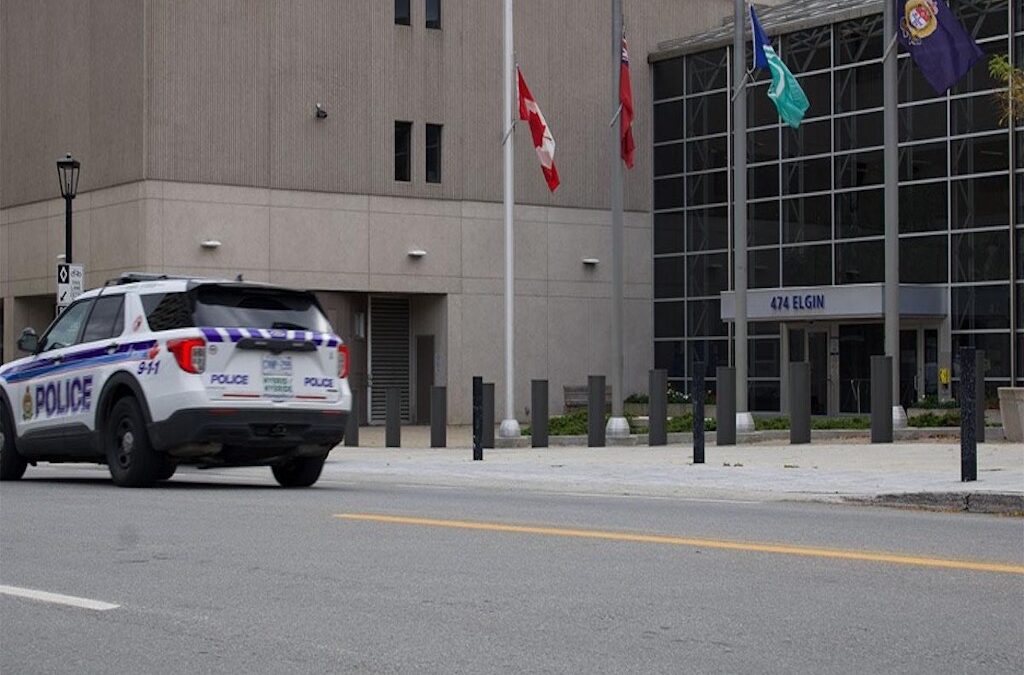Ottawa Police Service data shows reported hate crimes in October 2023 were 56 per cent higher than during the same period last year.
A representative from the OPS said there were 56 reported hate crimes in October of this year— 43 deemed criminal — compared to 36 in October 2022 — 31 criminal.
This past summer Ottawa police said hate crimes rose 23.5 per cent compared to 2022. Out of 158 reported incidents, 25 were threats uttered to a person.
Hate crimes have grown more frequent in Ontario, especially in major cities like Toronto, an analysis of reported crime data from Statistics Canada from 2014 to 2022 shows.
Issues of intolerance and discrimination in cities throughout Canada have been brought to light by data that shows a concerning rise in hate-related incidents.
Threats to persons have been rising, a concerning trend as they are the second largest hate crime after mischief to property. The analysis of Statistics Canada’s data shows reported uttered threats from hate-related incidents more than doubled to 42 in 2022 compared to 19 the previous year.
“Since Oct. 7, we’ve seen an increase of over 1000 per cent in incidents that are reported to us from schools, colleges and universities, in the streets, transit and in the workplace”, Uthman Quick, the communications director for the National Council of Canadian Muslims, told the Turkish Radio and Television Corporation last month.
The Criminal Code defines an uttered threat as a knowingly conveyed or received threat to cause harm to a person, property or animal that is the property of any person.
The increase in threats falls under the greater context of rising police-reported hate crimes in Ontario; the province has seen the highest increase in the number of hate crime incidents in Canada.
“The most alarming trend is the incredible rise in incidents of hate crimes, antisemitism, anti-Islamophobia that we are seeing,” said Toronto Police Chief Myron Demkiw in a news conference earlier in November.
A hate crime is considered a criminal offence that is motivated by an offender’s hate or bias "against a racial, religious, ethnic, sexual orientation or disability group," according to Ontario’s Policing Standards Manual.
In a written statement, a spokesperson for the Ottawa Police Service said, “Although exact numbers are not available, we can confirm that the Jewish, Black, LGBTQ2+ and Muslim communities are most targeted.”
In response to the rising number of incidents, the Toronto Police Service has increased the size of its Hate Crime Unit from a team of six to 20 investigators and eight special constables.
The expanded unit has been drawn from other areas of policing and has been put together as a means to “address the rise in reported hate crimes.”
Provincial action
In addition, Ontario has added $12.75 million to the Ontario Anti-Hate Security and Prevention Grant, for which applications closed for 2023-2024 on Nov. 7.
The grant provides eligible faith-based and cultural organizations "funding to enhance or implement measures to ensure community spaces remain safe and secure from hate-motivated incidents.”
Individual organizations can get up to $10,000 to protect their facilities from hate-related incidents, including graffiti, vandalism or other damage. Funding is eligible for things such as security cameras, enhanced locks, cybersecurity measures and staff training.
Blumberg Canadian Charity Law, an organization that assists Canadian charities and non-profits, says, “the grant is beneficial to people in groups that are eligible, but time and time again the government is in a state of change as to who or what groups fit the criteria for the grant.”




